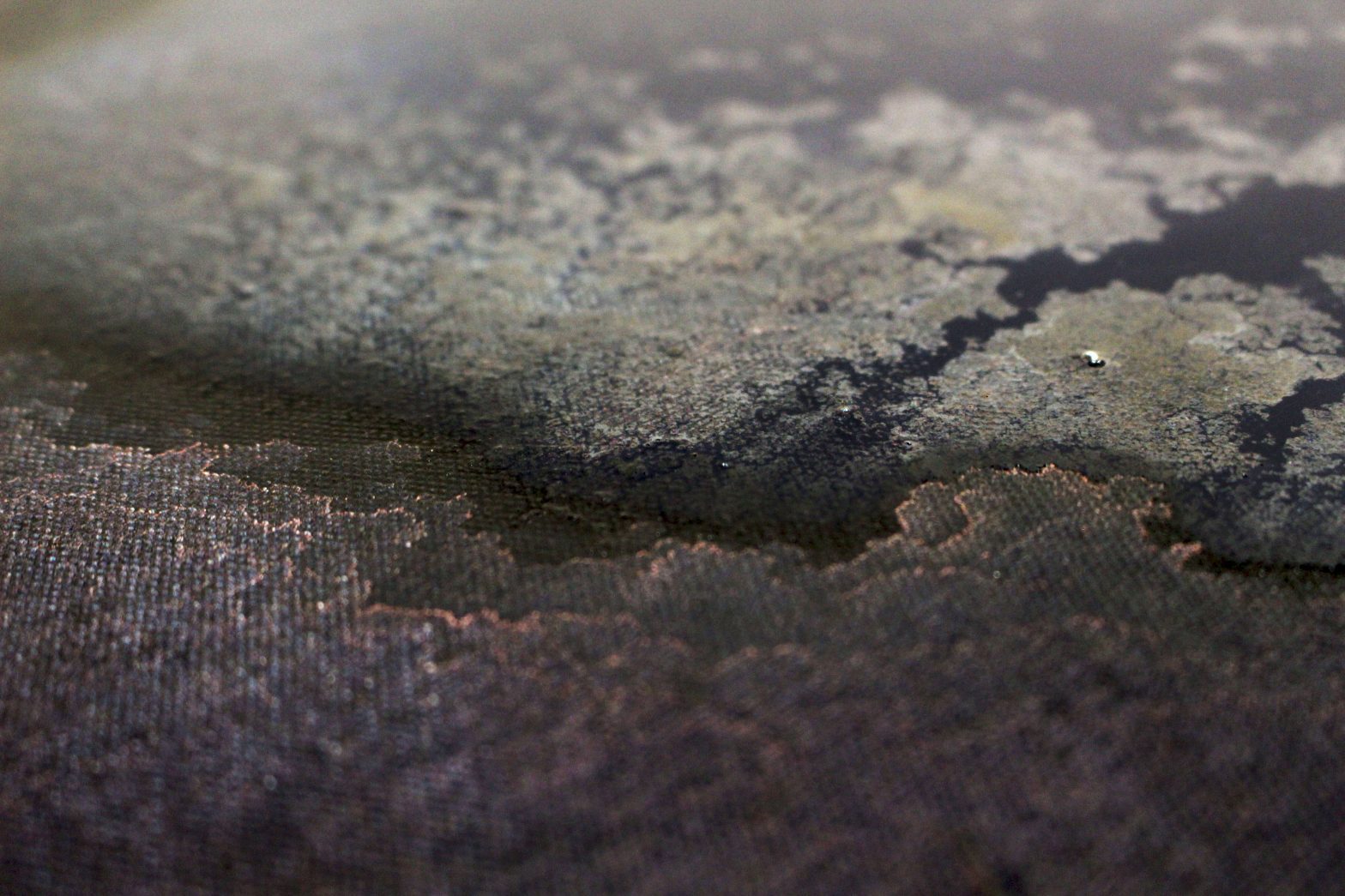Freddie Davies is a recent graduate of Oxford Brookes University. He is exhibiting his work at Modern Art Oxford from 30 August – 17 September as part of the Platform Graduate Award 2017. Below he talks about his work and the inspiration behind it.
Developing artwork is a means to sink into the ideals I most admire; namely, drowsiness, tranquility and introspection. I focus on nocturnes to capture atmospheres that cultivate these virtues, and I strive to develop them into something which is not a copy of the world, but a harmony in parallel to it. The vast majority of my painting consists of liquid mediums; liquidity grants paint a natural life and energy of its own, and removes the necessity for strict control. Watercolour has the unique capacity to behave as liquid smoke – which is why I find it so appropriate for dark, fleeting atmospheres.
Introspection is so prominent within my work because I believe all artwork is an expression of yourself. I found nightfall a perfect time for reflection; a great quiet falls over the buzzing city. It’s a moment to open up dialogue with yourself, and isolate your own voice from the many around you. I value this as an artist because it helps you to understand yourself, and therefore create work that is more sincere and authentic. This is where my interest in painting nocturnes originally developed.
I identify nightfall as a process that is inherently abstract. The decaying light reduces forms and shapes in the shadows to something bare; something minimal. Only the essential remains. I find something intensely satisfying in this idea of stripping it all back as though the night is a great pair of scissors trimming away all the things we can do without. You get the feeling you’ve been taken somewhere else. In the words of the poet Rupert Brooke “Cities, like cats, will reveal themselves at night”.
I admire this notion of reduction and minimalism; it links to the post WWII attitude of sculptors – particularly Henry Moore – trying to take art back to its pre-rational origins. I think art can suffer when the creator thinks too deeply, because it interferes with instinct. This has fed into my fascination with oriental rock philosophy; collecting and displaying stones seems primitive and childlike, but curiously sage-like at the same time. The Japanese art of dorodango (creating smooth, polished spheres from soil) embraces both of these qualities. I find a kind of refuge in these processes where I can engage with the craft and empty my head of thoughts; it’s a meditative form of activity, and ultimately something that provides respite from everyday life.
